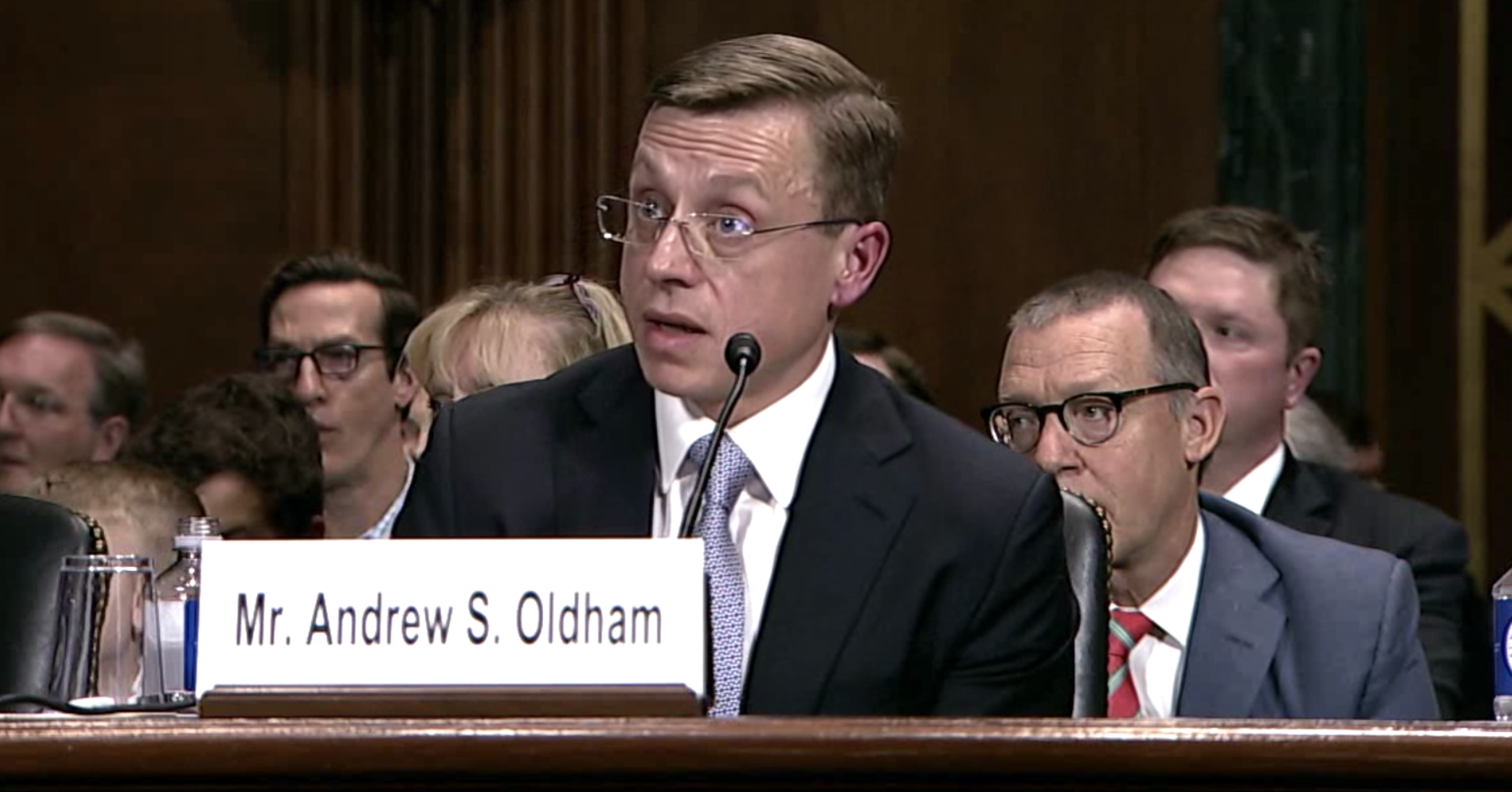[ad_1]

WASHINGTON ― The Senate voted on Wednesday to confirm another one of President Donald Trump’s judicial nominees, Andrew Oldham, despite more than 200 civil rights groups opposing him over his record of trying to restrict voting and civil rights.
Every Republican voted to put Oldham, 39, into a lifetime seat on the U.S. Court of Appeals for the 5th Circuit, based in New Orleans. Every Democrat opposed him. The final tally was 50-49.
Oldham, a former Texas deputy solicitor general who now serves as general counsel to Gov. Greg Abbott (R), in 2013 defended the state’s voter photo ID law, SB 14, which a federal judge later struck down as an “unconstitutional poll tax.” In his filing on behalf of the state, Oldham ripped the U.S. Justice Department’s civil rights division for refusing to preclear the law and argued that Section 5 of the Voting Rights Act ― the heart of the historic federal civil rights law ― should be invalidated altogether.
In 2014, Oldham argued that housing discrimination cases should not be brought based on disparate impacts on minority communities. The Supreme Court rejected his argument, saying that the Fair Housing Act “must play a part in avoiding the… grim prophecy that ‘[o]ur Nation is moving toward two societies, one black, one white — separate and unequal.’”
Oldham has also come under fire for defending Texas’ extreme anti-abortion law, HB 2, that was struck down by the Supreme Court, and for questioning the legitimacy of the Environmental Protection Agency.
The Leadership Conference on Human and Civil rights, a coalition of more than 200 national civil and human rights groups, wrote to all senators in April urging them to oppose his confirmation.
“Mr. Oldham is a conservative ideologue who would not be a fair-minded jurist and should not be given a lifetime appointment on the federal judiciary ― an appointment which, given his age, could span half a century,” reads the letter.
Oldham, like another one of Trump’s court picks, refused to say during his confirmation hearing whether he believed Brown v Board of Education, the landmark 1954 school desegregation case, was correctly decided. This drew particular condemnation from the Congressional Black Caucus.
“Refusing to say whether this most important of cases, which established so many of the rights that we enjoy today, was properly decided should completely disqualify a nominee seeking a lifetime appointment to the federal bench,” the caucus said in a May letter to Senate leaders.
Republicans are radically changing the courts
Oldham is Trump’s 23rd confirmed circuit judge ― a massive number for a president only 18 months into his first term. At this point in their presidencies, Barack Obama had nine of his circuit court nominees confirmed, George W. Bush had 16.
Senate Republicans are set to confirm Trump’s 24th circuit judge later this week: Ryan Wesley Bounds to the U.S. Court of Appeals for the 9th Circuit, based in San Francisco.
The mad rush on judicial confirmations represents a coordinated effort by Republicans to fill federal courts with conservative judges.
Senate Majority Leader Mitch McConnell (R-Ky.) led Republicans in denying court seats to Obama for years so a future GOP president could fill them. When Trump took office, he inherited more than 100 federal court vacancies. The Federalist Society, a national organization of conservative lawyers, has served as a pipeline to the Trump White House for nearly all of its judicial nominees.
And the Senate, led by Republicans, is eager to confirm as many of them as possible.
What will the nation’s courts look like for years after Trump has left the White House and Republicans have lost their Senate majority? Even whiter, even more male, and repopulated with young, conservative judges with records of being anti-abortion, anti-LGBTQ and hostile to voting rights.
[ad_2]
Source link

